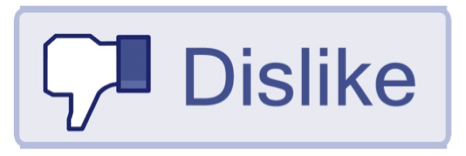Remember, when social media use to be fun? Like, when it was entertaining and not political or divisive, but exploratory fun! Yea, those overarching days are over, but it doesn’t mean we can’t still protect ourselves, and yet have fun, and continue to make new friends.
For many of us, we learn from our mistakes and hopefully grow with time. Admittedly then, I’ve been one who has done each of these practices (both good and bad), which is why I share these 3 tips towards a better social media experience:
- Negative Interactions – If someone is negative, don’t interact with them. Internet trolls abound on social media, and
 there are too many significant interactions to pursue than sparring with someone who is never going to reason with you. Keep in mind, though, disagreeing with you is not the same thing as being negative. Sometimes we need discussions and disagreements with others to grow as individuals. In contrast then, avoid the interactions where people are belligerent, cursing, or needlessly sarcastic. While I am sarcastic, on social media I now try to keep it with my friends who know my humor well. Plus, my definition of “needlessly sarcastic” being where you can’t tell if they are being funny or not with no sign of letting you in on the joke, or when you don’t know them.
there are too many significant interactions to pursue than sparring with someone who is never going to reason with you. Keep in mind, though, disagreeing with you is not the same thing as being negative. Sometimes we need discussions and disagreements with others to grow as individuals. In contrast then, avoid the interactions where people are belligerent, cursing, or needlessly sarcastic. While I am sarcastic, on social media I now try to keep it with my friends who know my humor well. Plus, my definition of “needlessly sarcastic” being where you can’t tell if they are being funny or not with no sign of letting you in on the joke, or when you don’t know them. - Ignore When You Don’t Know The Person – Ignoring people you don’t know on social media helps build a better experience. We’ve all experienced the instance when we are having a discussion with a friend, and then out of nowhere, a random person we don’t know interrupts our conversation. Social media is built for these interruptions, but they arguably should not happen, especially when their comment doesn’t make sense in the broader context of the conversation. As a result, I try to ignore these individuals and continue talking with social media friends I do know. However, there is one exception to my rule.
- Does Any of My Friends Know Them? – Social media was built to meet new people and have new social interactions. Despite the two tips above, I’m still a part of various groups and have great friends on social media I’ve never met. My rule for developing them as actual friends than “social media friends” is to see if any of my other friends know them? If not, then I continue to ignore them. Otherwise, I’ve developed some great friends I look forward to meeting in person one day.
Looking for mutual friends has allowed me to work through the sarcasm and miscommunications that are commons with social media. As a result, I’ve grown my understanding of issues and even made some quality friends. Again, mutual friends are important because they serve as a verification filter to make new connections with people.
Social media has changed a lot since Facebook launched in 2004. Gone are the days of discovery and fun without agenda, but in some ways, that is expected. How, then, are we going to grow and adjust our social media habits towards better experiences? Putting voluntary guidelines, as I’ve suggested above, can help. These might work for you, they might not. Ultimately, enact guidelines that work for you to create a better experience on social media for yourself and others!



